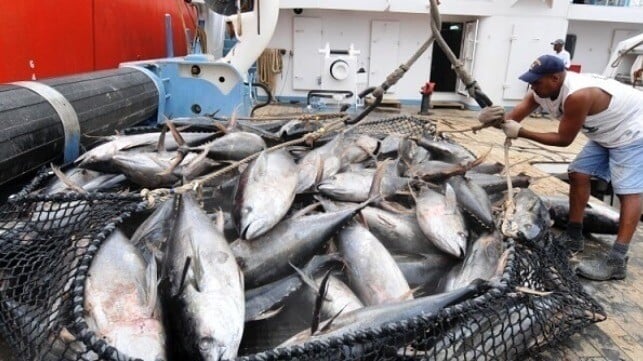High Seas Treaty Will Help Defend Small Island Nations' Fisheries

As ratification of the High Seas Treaty picks up the pace, Seychelles has become the first African nation and the third globally to ratify the historic ocean agreement. Seychelles ratified the treaty through a majority vote last week at its National Assembly. For the High Seas Treaty to enter into force, another 57 countries will need to sign and ratify it.
While presenting the treaty to the legislatures, the Leader of Government Business Bernard Georges said that the legal framework's main purpose is “to take stewardship of the world’s oceans, care for and protect the marine environment as well as maintain the integrity of undersea ecosystems and marine biodiversity.”
As a legally binding instrument of the United Nations, the High Seas Treaty will place 30 percent of the world’s oceans into protected areas, helping to protect marine resources in parts of the ocean beyond national jurisdiction. The treaty was formally adopted by governments in June last year and opened for state signatures on September 20.
As a small island developing nation in the India Ocean, Seychelles stands to benefit from the implementation of the treaty. Fisheries represents the second most important economic sector in the country after tourism. Unfortunately, the IUU (illegal, unreported and unregulated) fishing menace - especially from commercial foreign-owned fleets - have seen significant reduction of fish stocks.
“Two thirds of fish stock being fished in seas beyond the national jurisdictions, are being done in a non-sustainable way, and if a decision is not taken quickly, many fish stocks will crash and lead to food insecurities in many countries,” added Bernard Georges. This would be damaging to a country like Seychelles, where over 90 percent of the territory is ocean.
To stem the threat, Seychelles was among the first countries in 2017 to join the Fisheries Transparency Initiative (FTI), a global partnership that seeks to make fisheries management more transparent and inclusive. By ratifying the High Seas Treaty, it will hopefully act as a bulwark against multiple illicit maritime activities facing the country.

that matters most
Get the latest maritime news delivered to your inbox daily.
In the recent past, Seychelles have built a reputation as a staunch champion of ocean conservation. As of 2020, it was among the first countries in the world to fulfill the pledge of protecting 30 percent of its marine waters, through a debt-for-nature swap deal facilitated by the U.S based NGO The Nature Conservancy (TNC). This means over 154,000 square miles of Seychelles’ waters, an area twice the size of Great Britain, is designated as marine protected area (MPA).
Top image: Yellowfin tuna caught in the Seychelles (Seychelles Nation / CC BY 4.0)
